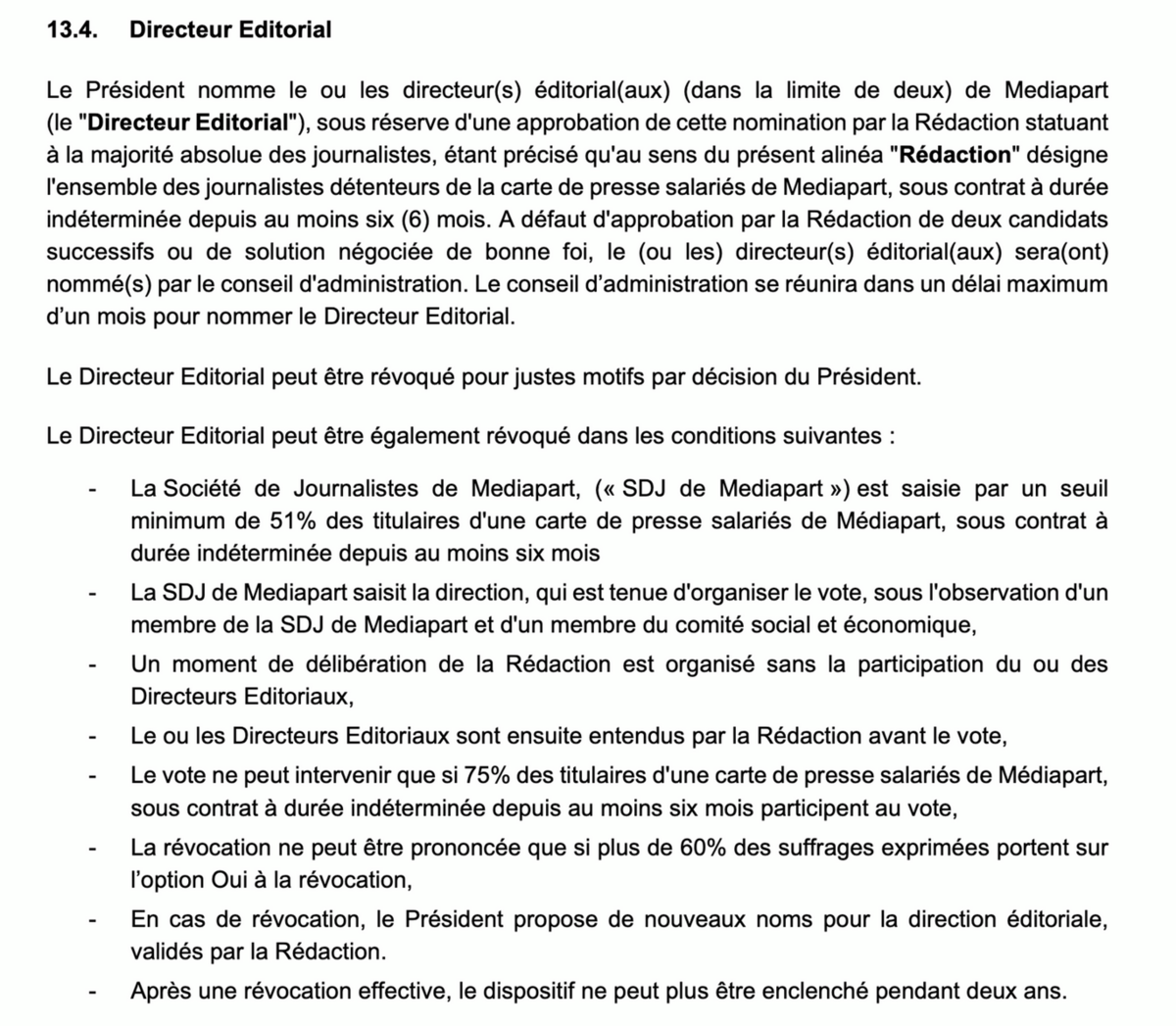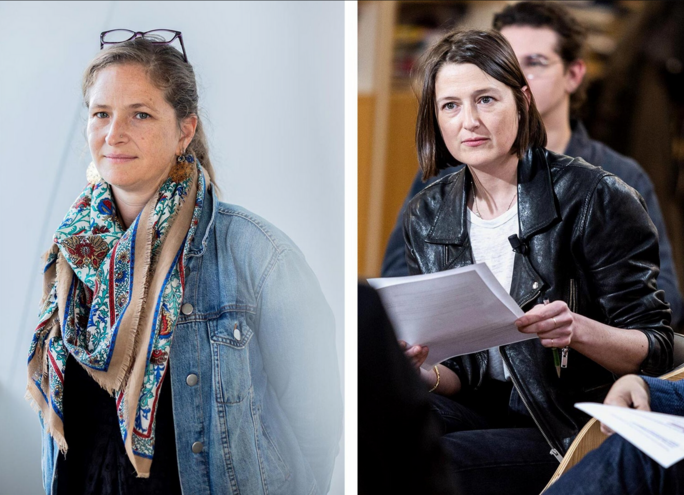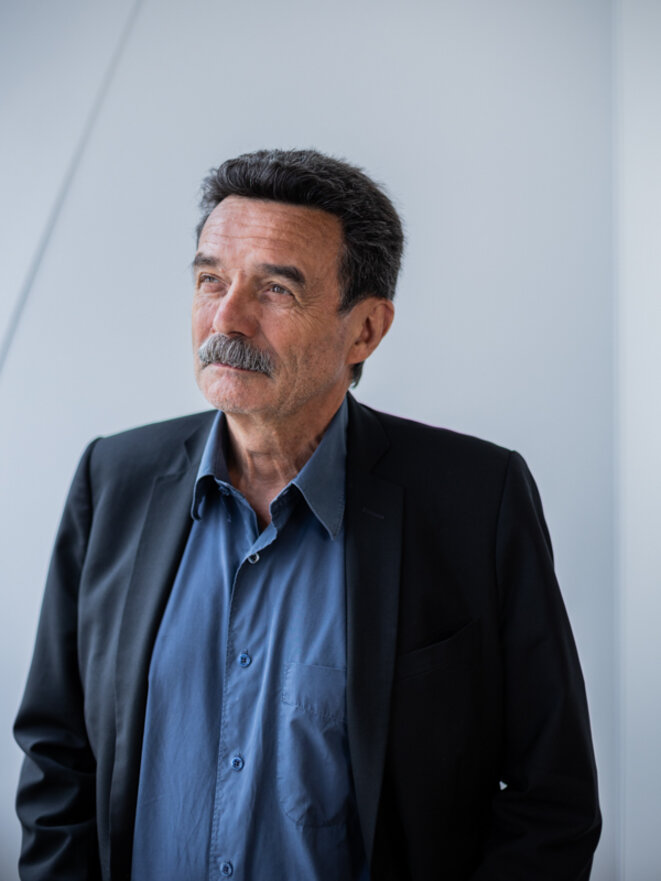After iTélé, Canal+, Paris Match, Europe 1, Prisma and so on, another attack on editorial independence by oligarch Vincent Bolloré, this time against the weekly newspaper Le Journal du Dimanche, underlines the urgent need for guarantees written into law to protect it (see here, here and here).
Faced with an accelerating concentration of capital with far-right ideological ambitions, a trend helped by the abysmal political inaction of both the executive and legislative authorities, this is a vast undertaking. But there are two simple measures that all democrats should support: the right of editorial teams to approve (or reject) and to remove (and thus dismiss) an editorial management team that those running media organisations and their owners want to impose on them.
These two measures are set in stone in Mediapart's statutes. Article 13.4 requires the approval “by an absolute majority of journalists” of a new editorial director proposed by the president of Mediapart, who is by statute a journalist and, by dint of this title, publishing editor. A mechanism to remove the editorial director at the initiative of Mediapart's union branch, the Société des Journalistes de Mediapart, was recently added and is also set out:

Agrandissement : Illustration 1

These are the measures that were applied ahead of the vote which, on Wednesday June 28th, approved by a large majority the proposal that I had made nominating Lénaïg Bredoux and Valentine Oberti as Mediapart's new editorial co-directors. In a vote in which 91% of those eligible took part, the 'yes' proposition received 88.5% of the votes, the 'no' 3.8% and there were 7.7% blank votes. The professional backgrounds of Lénaïg Bredoux and Valentine Oberti are complementary and show the broadening of Mediapart's editorial field in recent years. The former represents our journalistic investment in the coverage of sexist and sexual violence, which coincided with the #MeToo feminist revolution. The latter symbolises our opening up to the audiovisual world with the professionalism of our live broadcasts and the production of documentaries.
Lénaïg Bredoux is 43-years-old. She graduated from the École Supérieure de Journalisme (ESJ) at Lille in 2005, and wrote on social issues at L’Humanité (2005-2007) and then on economic affairs at the news agency Agence France-Presse (2007-2010). Upon joining Mediapart in 2010 she covered political parties of the Left, before switching to the presidential beat at the start of the François Hollande presidency, from 2012 to 2017.
Having been behind our revelations in 2016 about the affair involving MP Denis Baupin, which began the #MeToo chapter in journalistic investigation, she took on the dual role of heading up political coverage at Mediapart and the coverage of sexist and sexual violence, before creating in 2020 the post of editor in charge of gender issues (a position that at the time had no equivalent in the rest of the French press). She has thus coordinated our investigations into all these issues while also taking on the role of internal point of contact and watchdog – for we must ensure we ourselves respect what we defend in our digital columns.

Agrandissement : Illustration 2

Valentine Oberti is 41 years old. Having graduated from the ESJ in 2007, she started working in radio with an international emphasis, starting in Morocco, and then as a freelance for three years for Radio France Internationale (RFI), Radio France, BFM Business, RMC and France 24. In 2011 she joined Mediapart for the first time, bolstering our political coverage of the centre and the Right during the 2012 presidential campaign. It was after this that she became involved in the world of television, first of all with the agency Premières Lignes which makes current affairs programme 'Cash Investigation', then 'Le Supplément' at Canal+, and finally 'Quotidien' on the TMC channel, where she was a reporter until her departure at the end of 2019 over an issue of journalistic independence which she described in our film Media Crash. Returning to Mediapart in 2020, she now co-directs our video unit, whose output of regular and special broadcasts has grown constantly over the past three years.
Our two new editorial directors will take up their duties on October 1st. Until that time Carine Fouteau and Stéphane Alliès will continue to shoulder those responsibilities with the same unflagging commitment that they have shown for five years since taking on the challenge in 2018 of succeeding François Bonnet, a co-founder of Mediapart, in a post he had occupied on his own since our journal was created in 2008 (see François Bonnet's blog and mine about that handover). A new development in the press, the functioning of this partnership reflected what Carine and Stéphane wanted to encourage: a benign leadership, shared commitment and collective dynamism. It's an understatement to say that their gamble paid off, in a position which is without doubt the most demanding in any press organisation.
Under their joint leadership, Mediapart has become, with around 220,000 digital subscribers, the third biggest French national general news daily, behind Le Monde and Le Figaro, which represents a growth of 47% in five years. Over the same period, staff numbers have grown by a third while our content has multiplied and diversified, in terms of both themes and platforms, with a particular accent on video and multimedia. Each March, in the interests of a transparency that is unique in the media, we publish these results and developments, all backed up by figures (see here).
On top of the figures, these past five years have taken Mediapart into a new era, an era of the long-term after a period of conquest. During this time the whole organisation has been strengthened, with 140 employees on permanent contracts today, half of whom are journalists. On top of that, its economic independence has been ensured for good by the creation in 2019 of the Fonds pour une presse libre (“Fund for a Free Press”, whose website is presented in English here), which is a non-profit structure serving the public interest. Finally, the handing over of responsibilities between the co-founders and the current team was implemented and completed this year by the general management, where Cécile Sourd has taken over from Marie-Hélène Smiéjan (see here).
It is against this backdrop that all the journal's various teams, whatever their sector – and thus not only editorial – have worked for several months on drawing up a joint road map for the next five years. The editorial aspect of this “strategic plan”, as we call it in internal jargon, will thus be carried out by a new editorial leadership team, with Carine Fouteau and Stéphane Alliès having expressed their desire to hand over the baton after five very demanding years.
This plan provides for a strengthening of our publishing processes through the creation of a dedicated team – a 'central' or hub in our jargon – which will take charge of that, and which Stéphane Alliès will coordinate. Its role will be to ensure greater oversight of the quality and accessibility of our content, in essence of the impact and appeal of a journal aimed at a broad public, that is online seven days a week, and which strives to reveal what the authorities are hiding, to provide the right tools to help understand our times and to reflect on the turbulence of society.
While the new editorial leadership team and new publishing system are getting started this autumn, I will be organising with Carine Fouteau, in consultation with Fabrice Arfi and Cécile Sourd – all three of whom are members of our governing board – my succession in the posts of president of Mediapart and publishing editor – positions which our statutes stipulate must be held by the same person, and who must be a journalist. As the final co-founder still present in the organisation, I will ensure that the choice made has the strength of being an obvious one, ahead of a vote in 2024 of the management board, on which sits an administrator representing the employees as well as independent administrators chosen by the Société pour la Protection de l’Indépendance de Mediapart (SPIM).
Over and above the individuals and the procedures, there remains the essential message that has been key to Mediapart's success over the last fifteen years: that of never believing you have arrived, delivered or made it, in short that you have become established. We know that events, the unexpected and the improbable, are the secret of our democratic commitment, serving the public interest of all, with no distinction as to origin, social status, culture, belief, appearance, sex or gender – in other words, spurred on by the ideal of natural equality which is the basis of the liberating, radical nature of the French and universal declarations of human rights.
Finally, we never forget that this venture is only possible thanks to all of you, our subscribers who support and help us in our commitment to the work. You, to whom we are thus immensely grateful.



